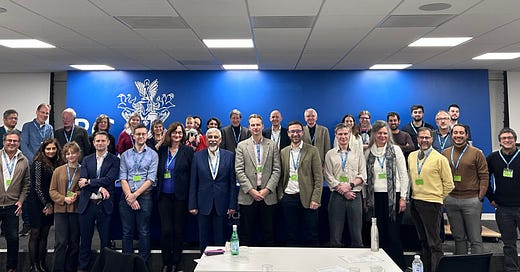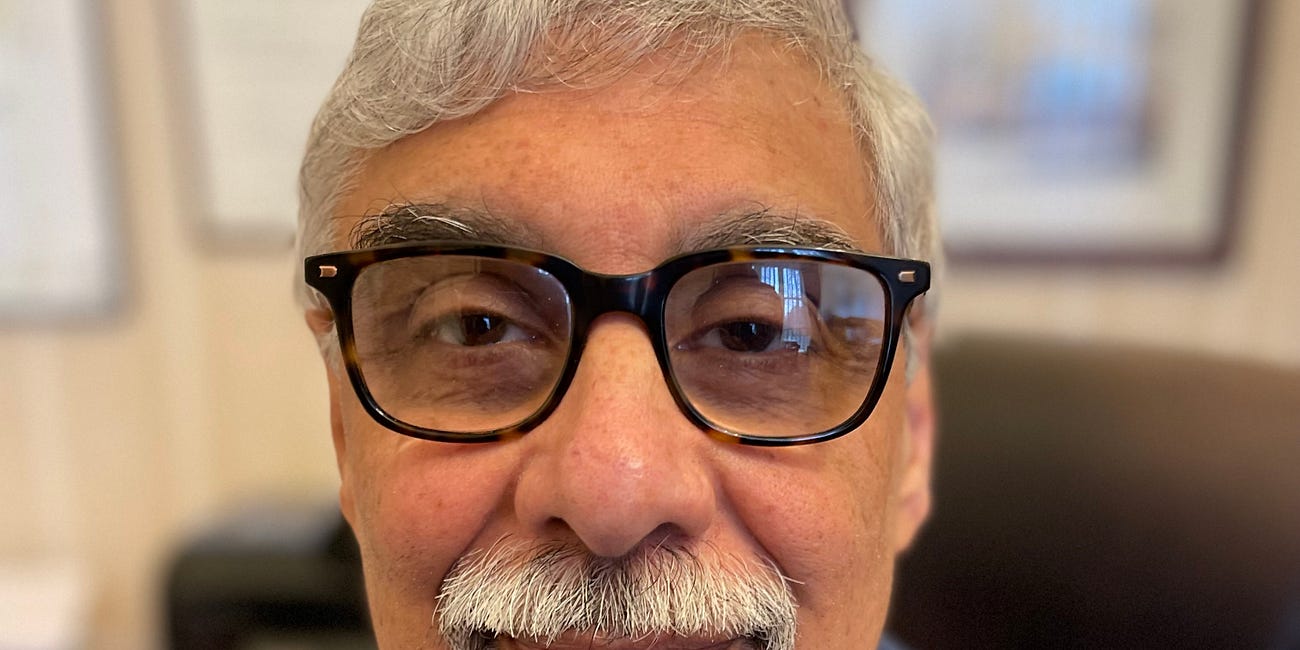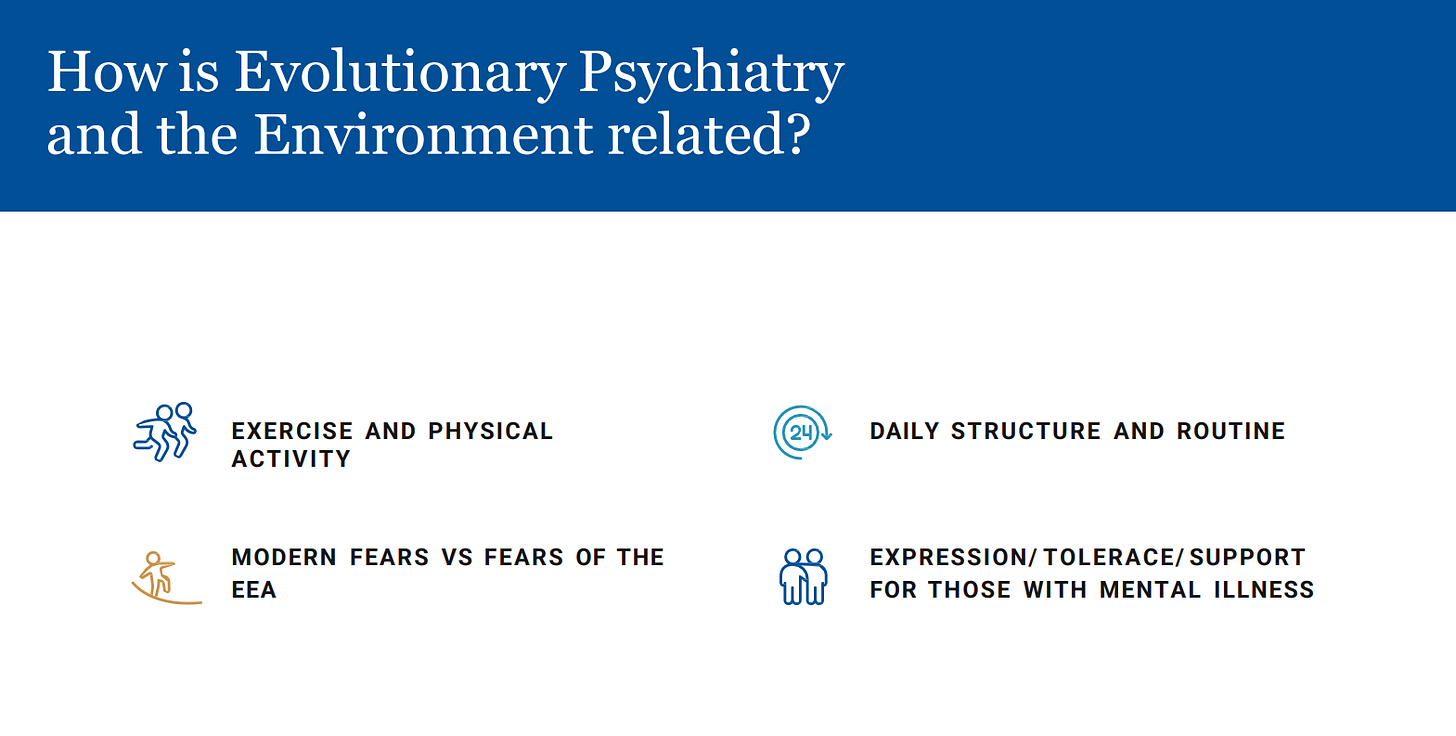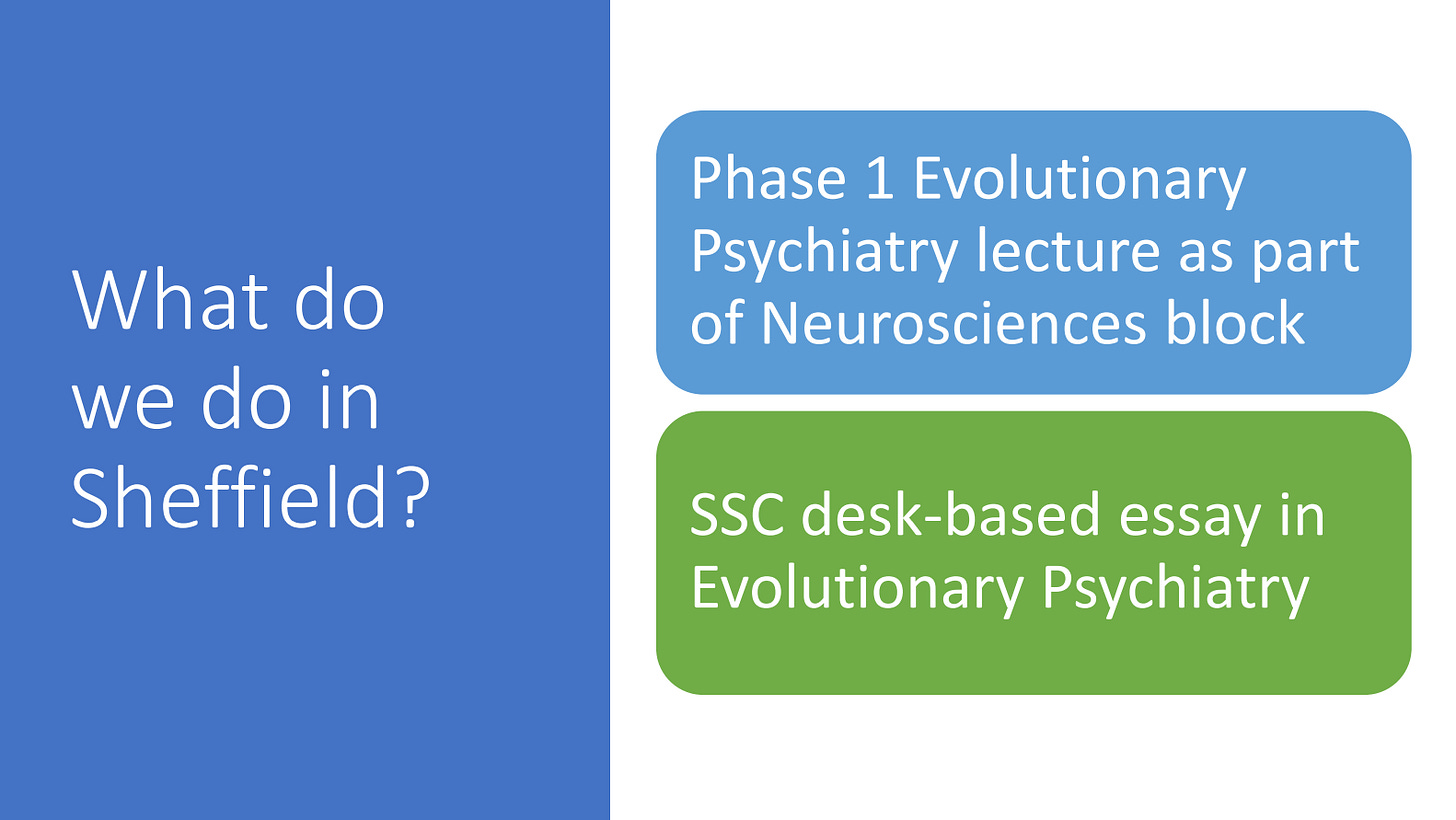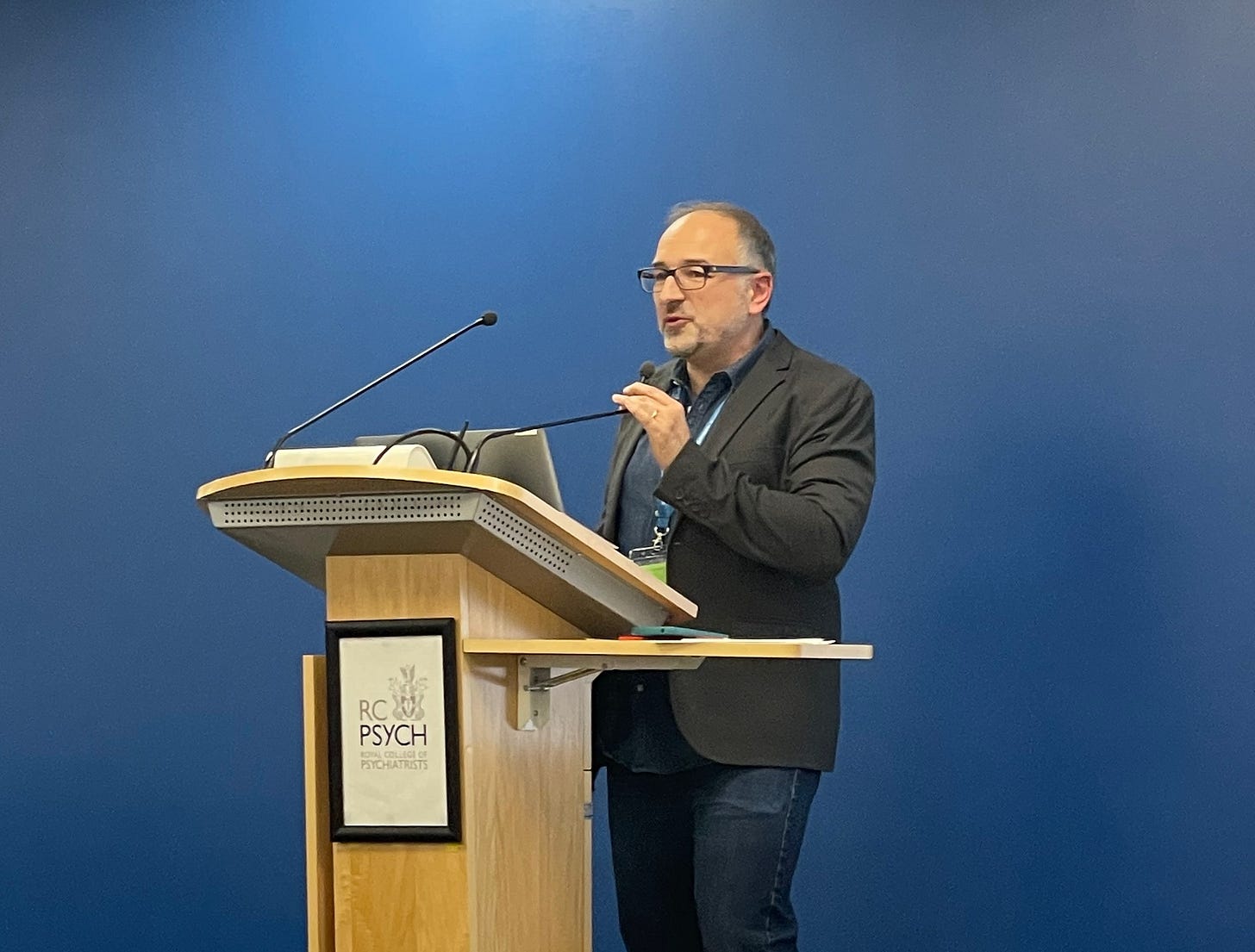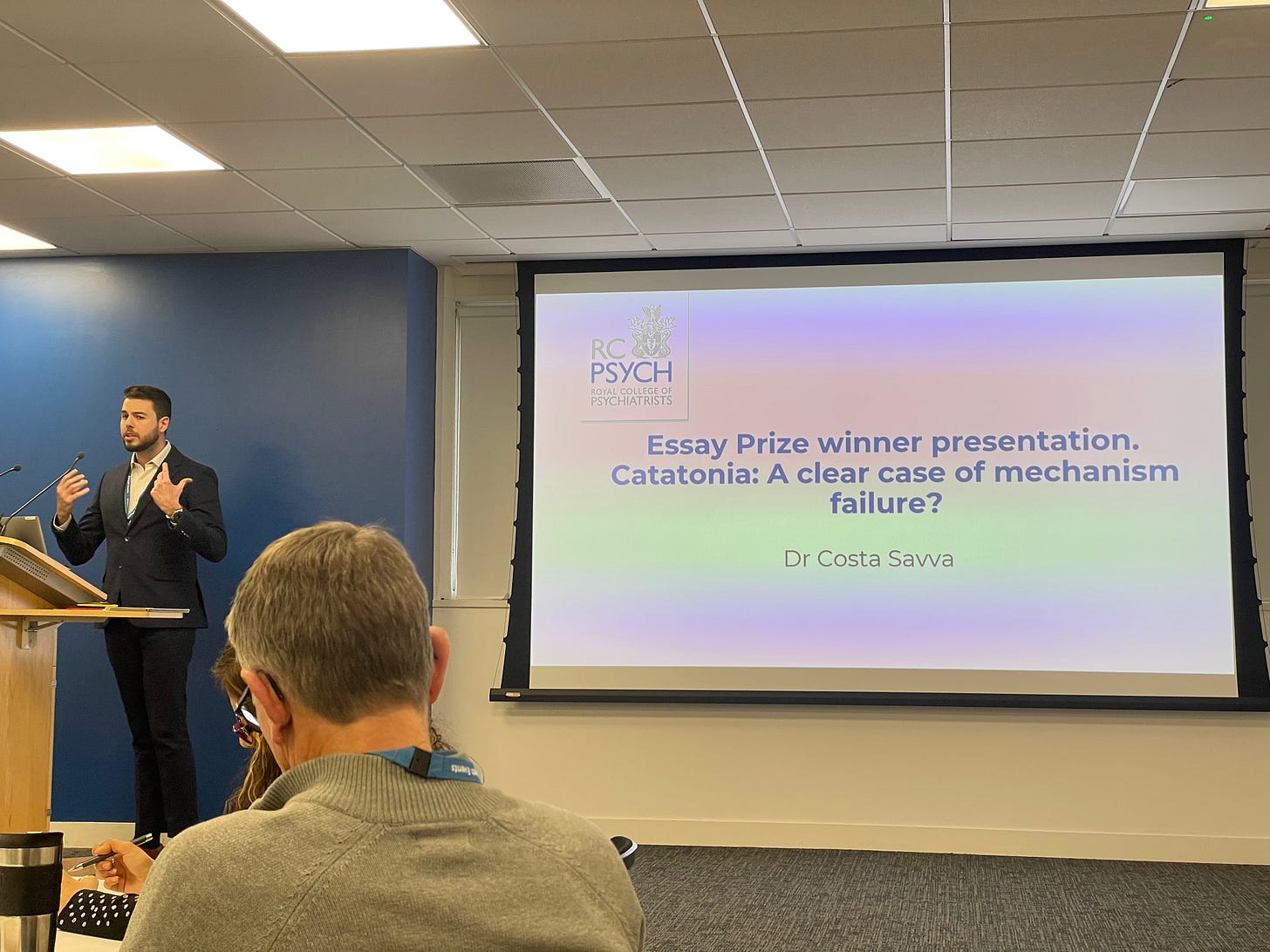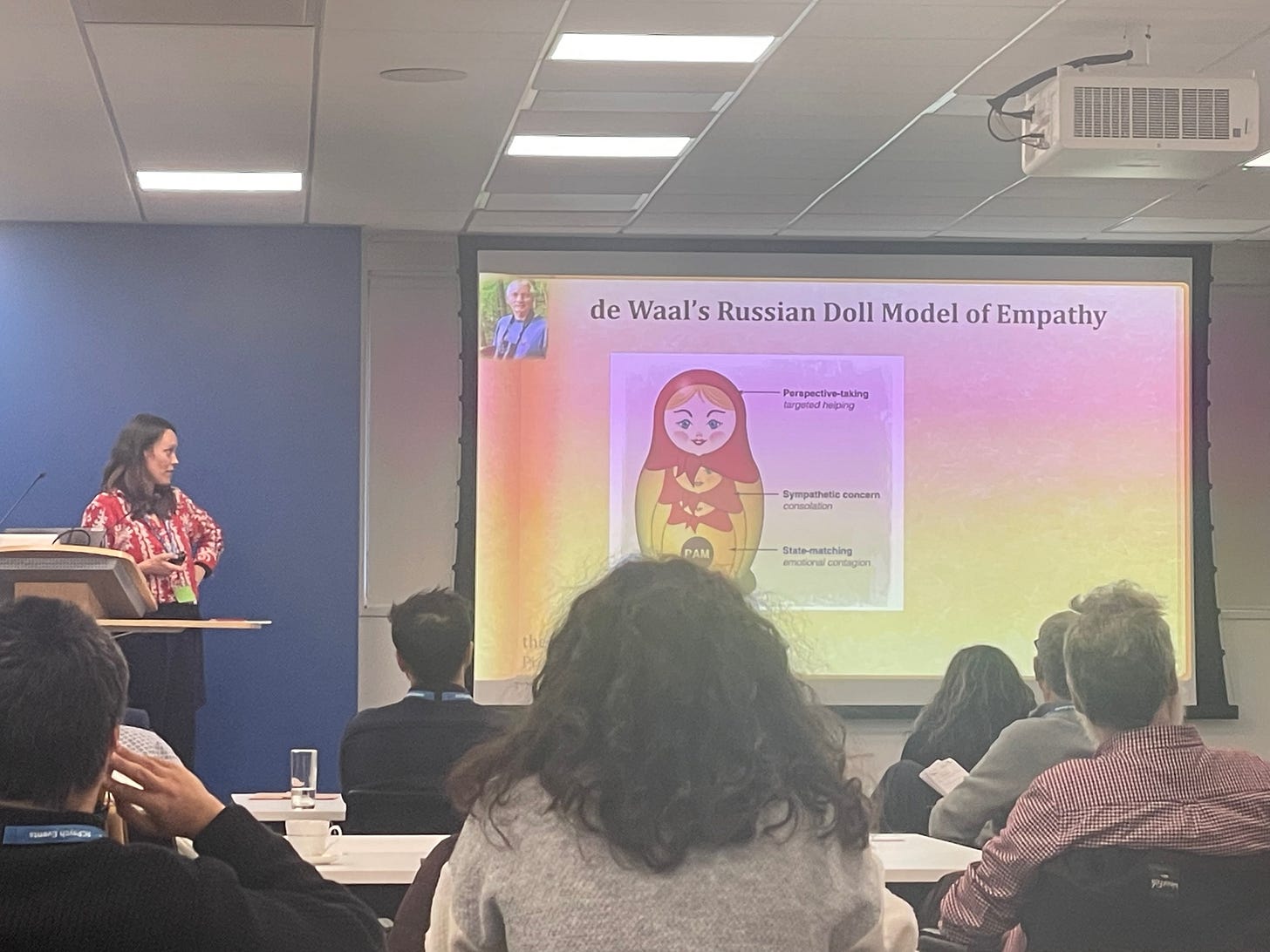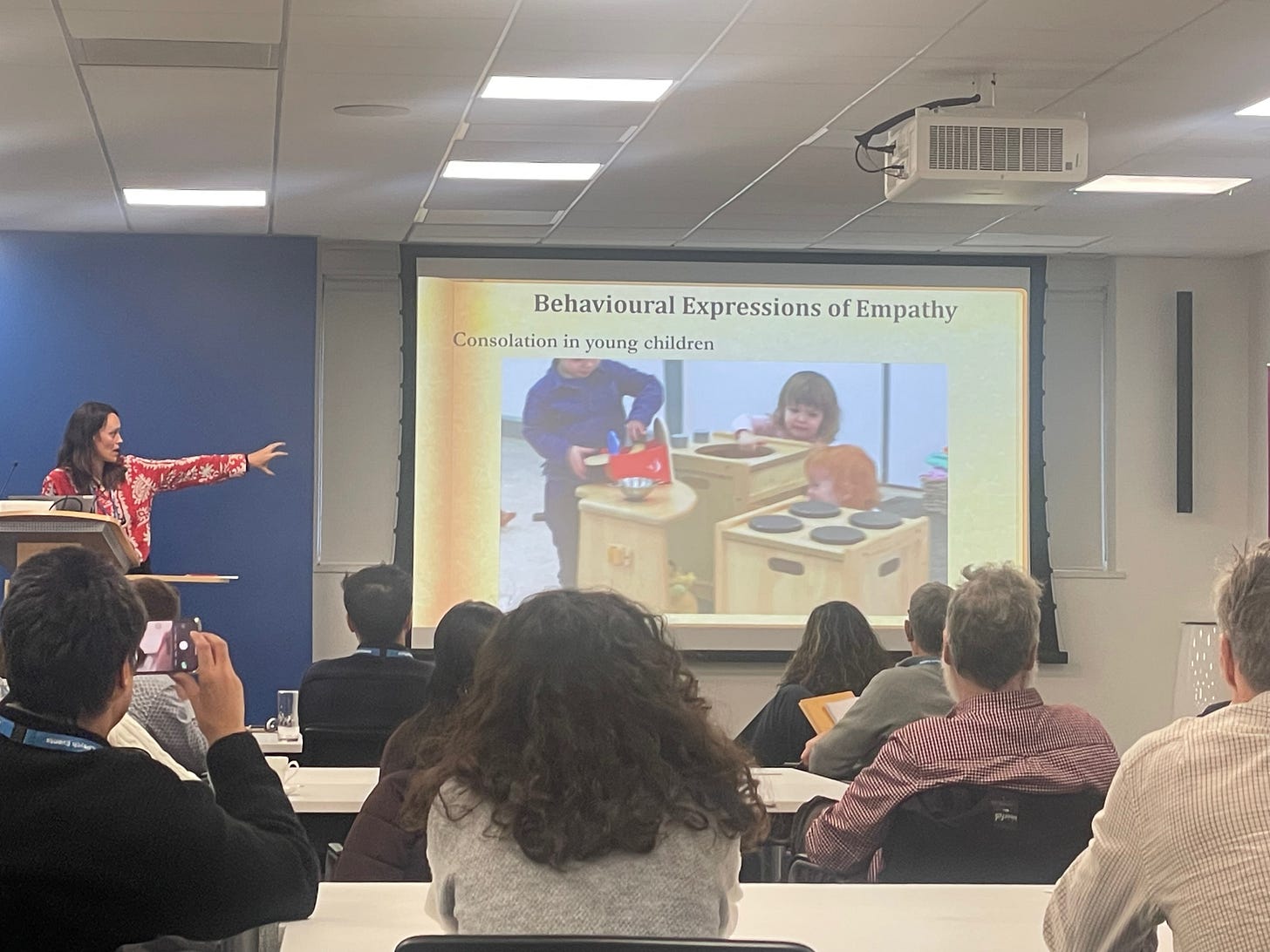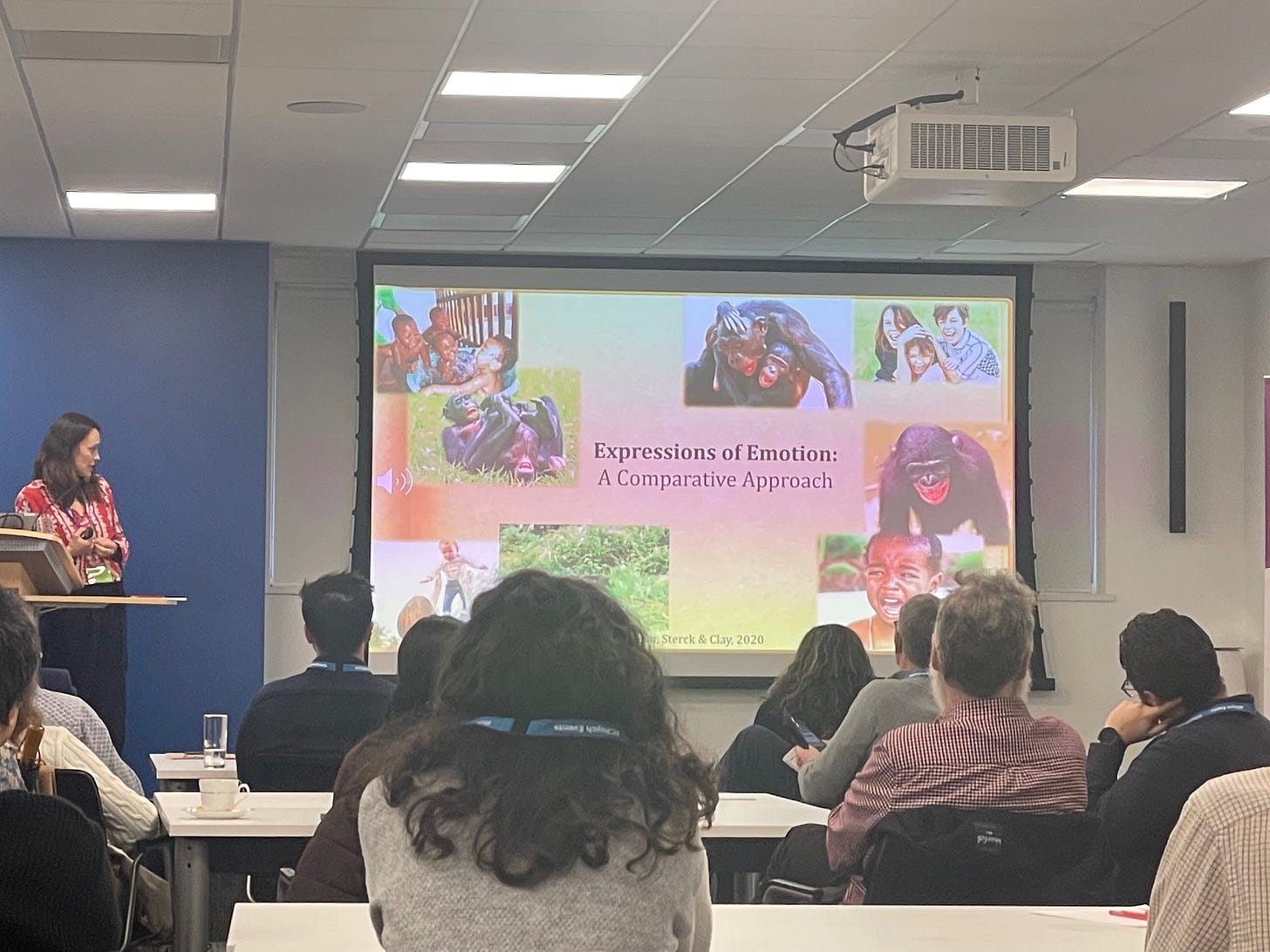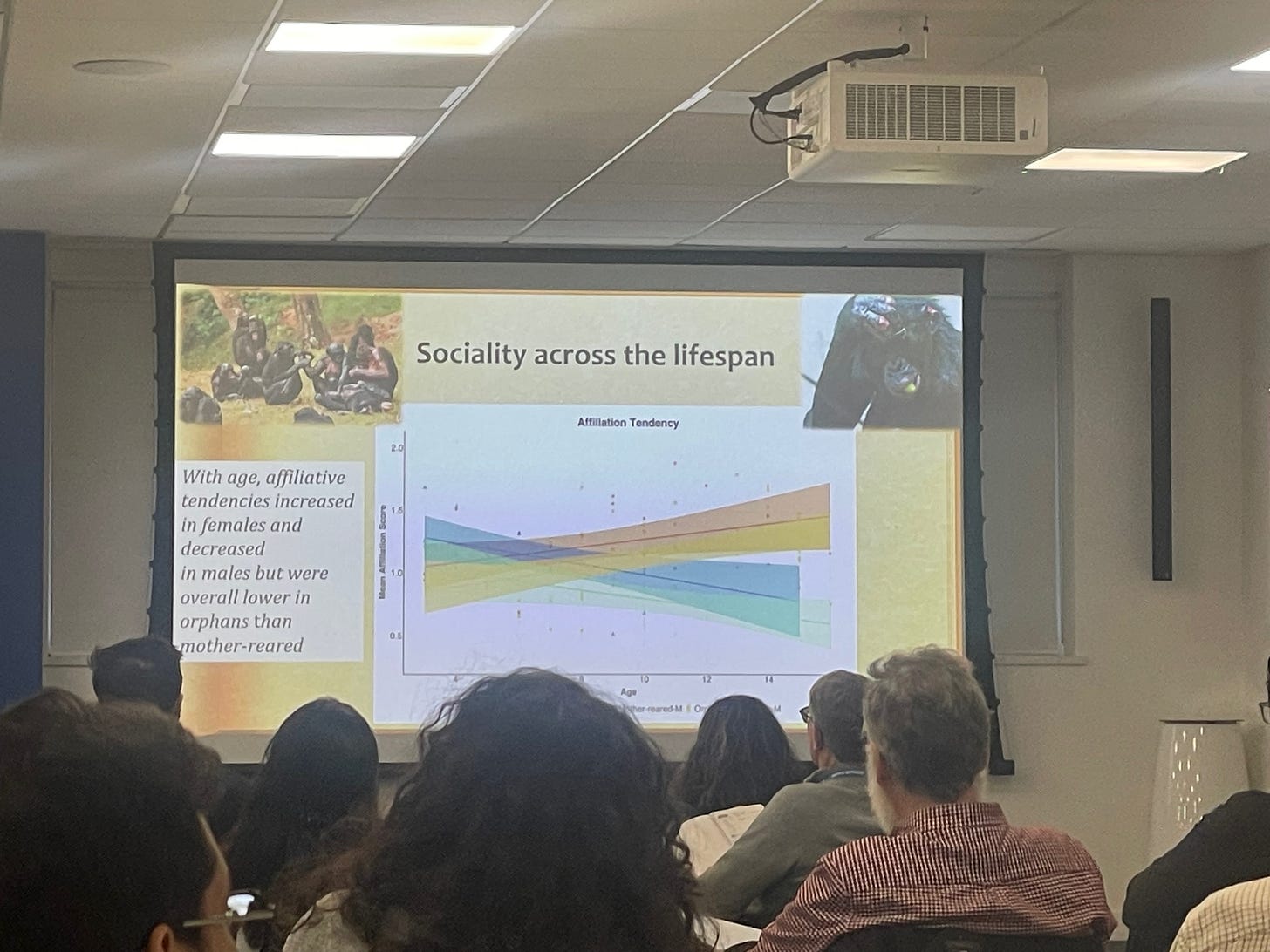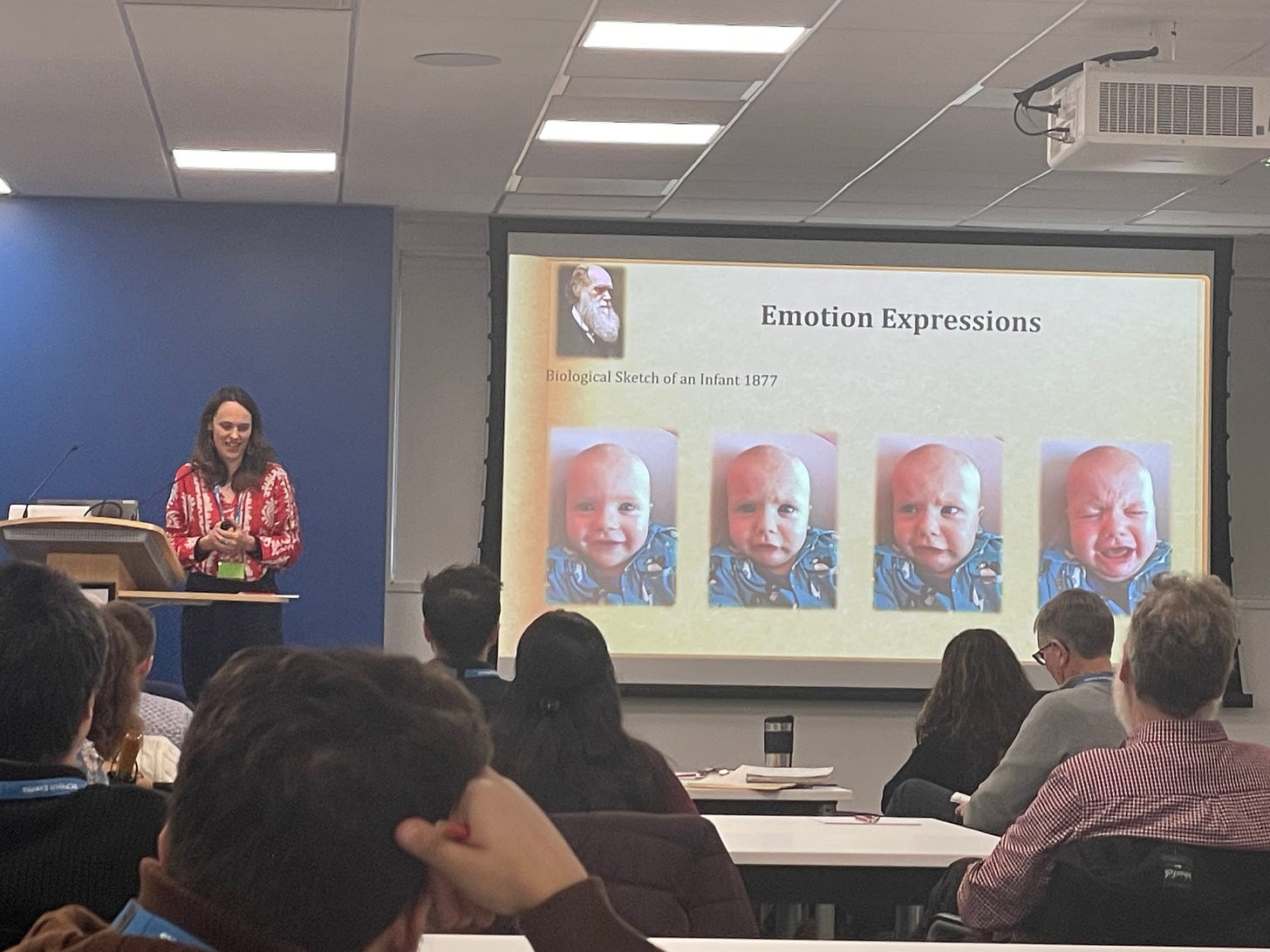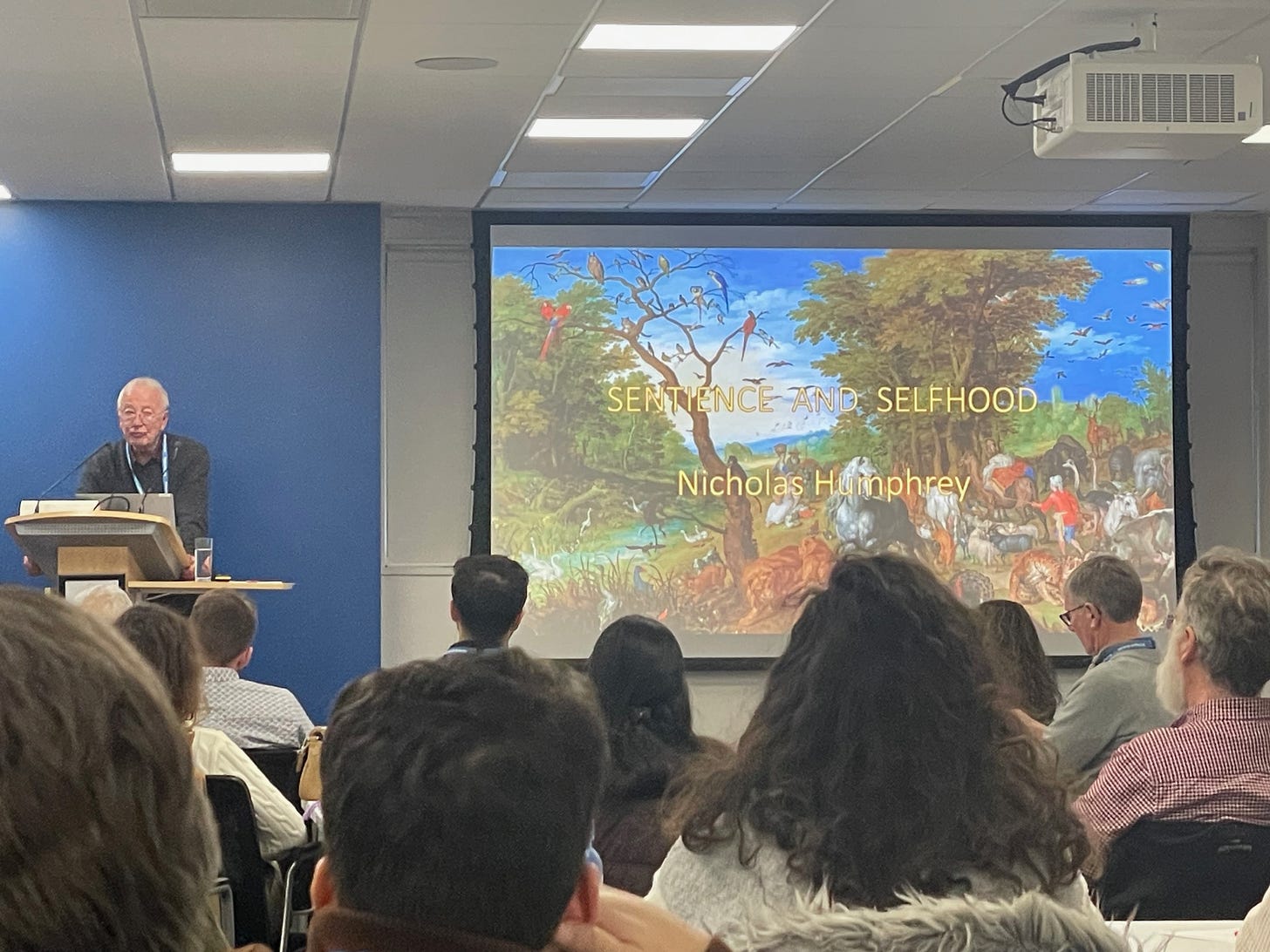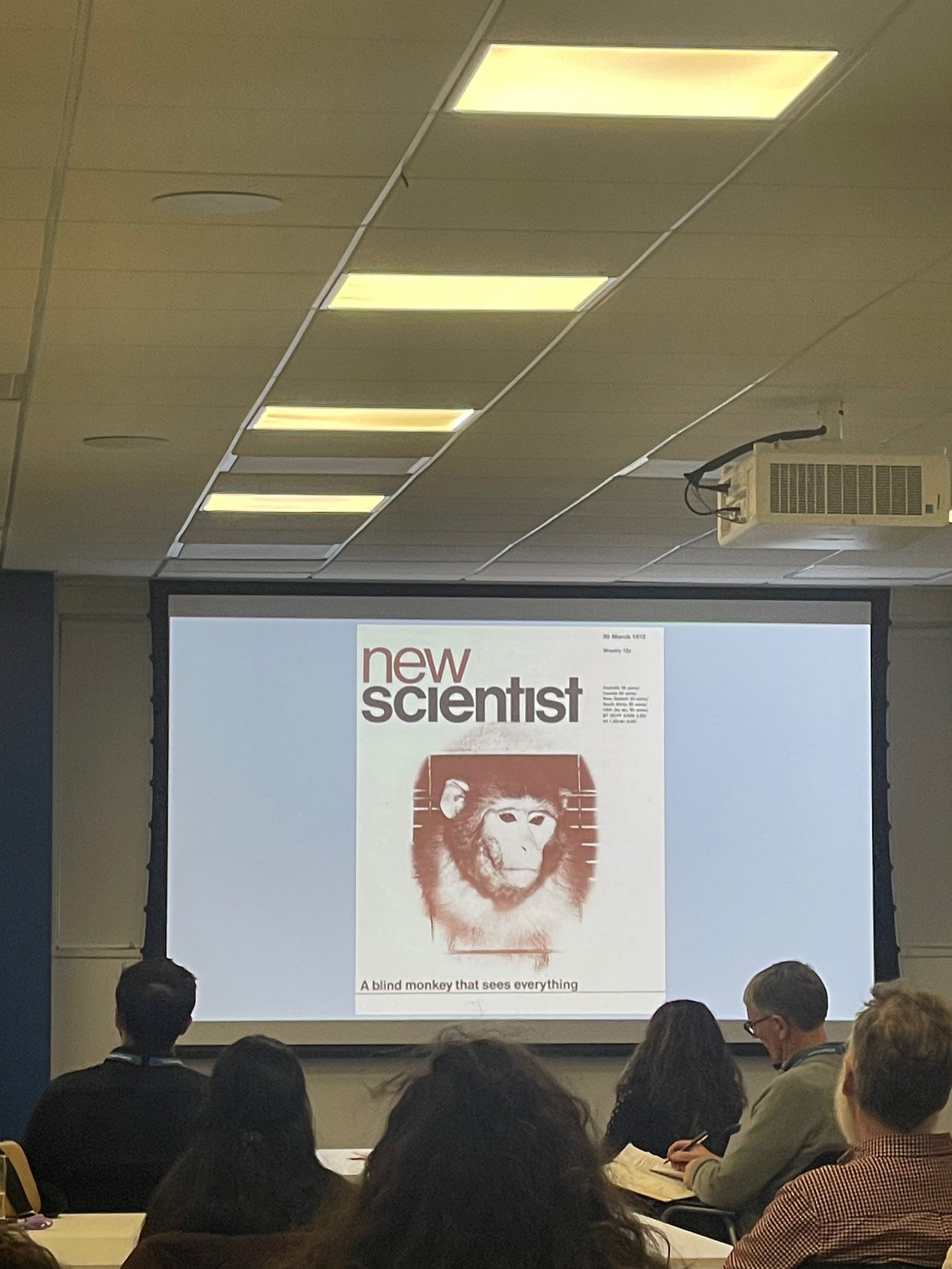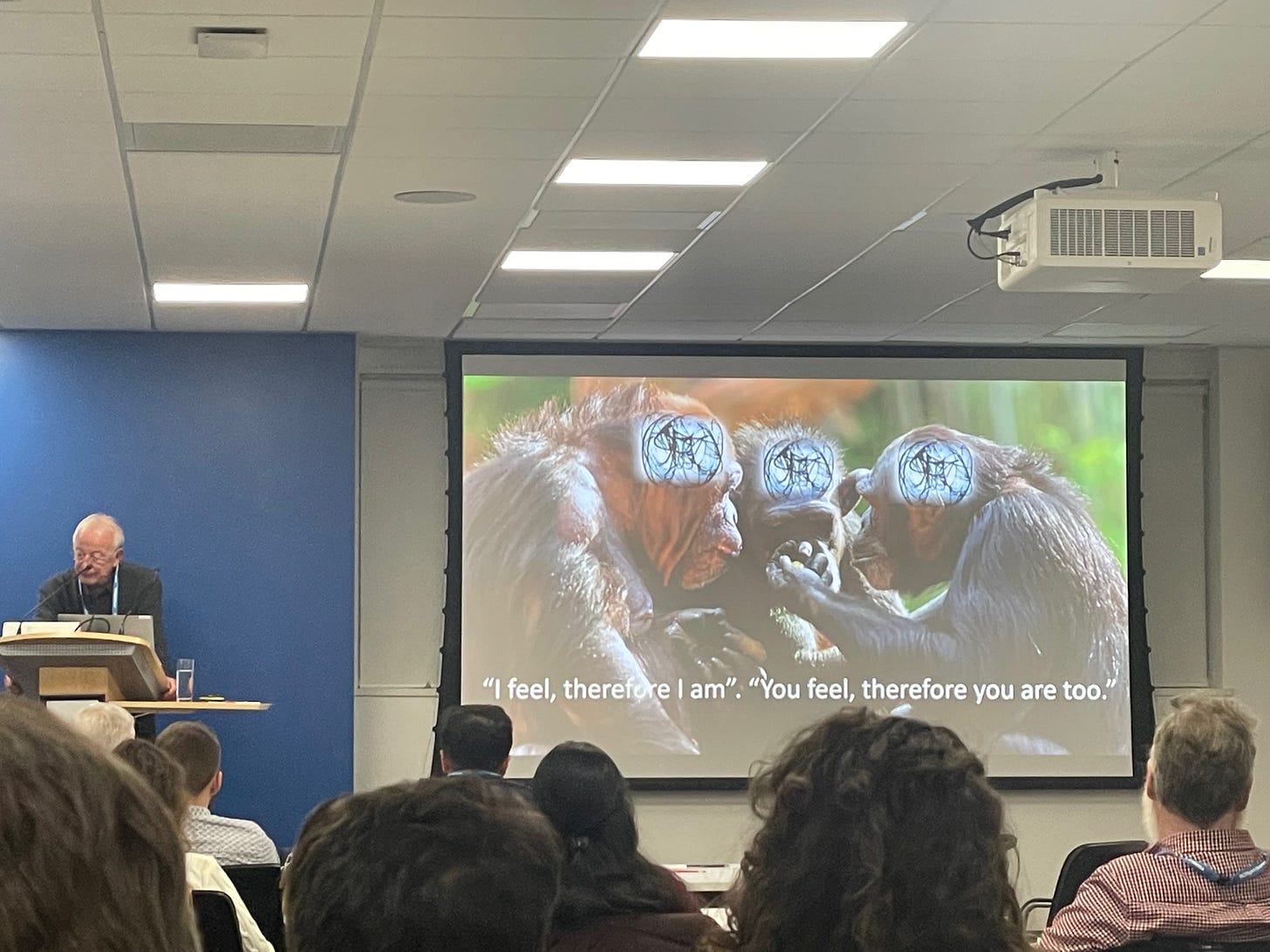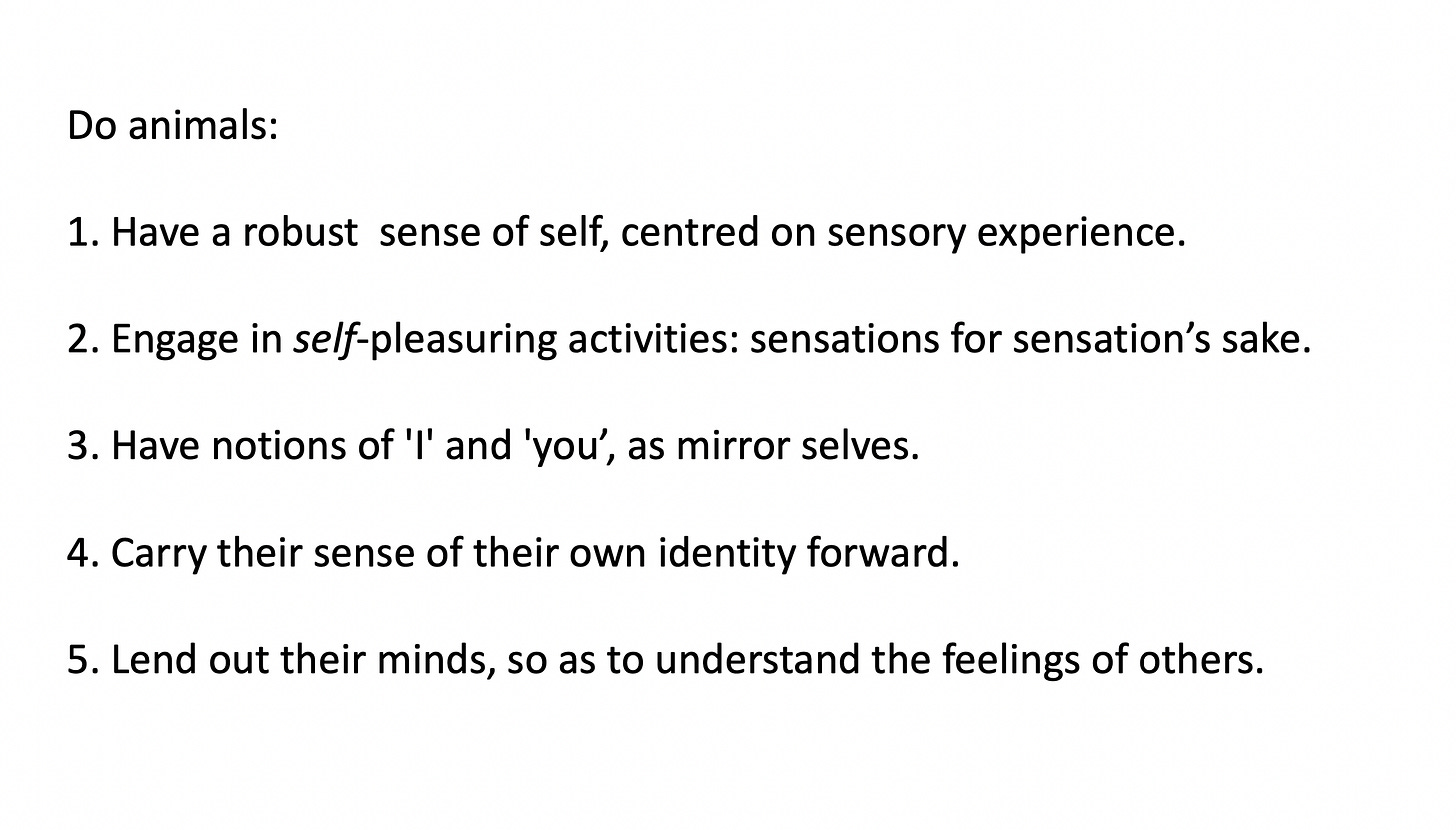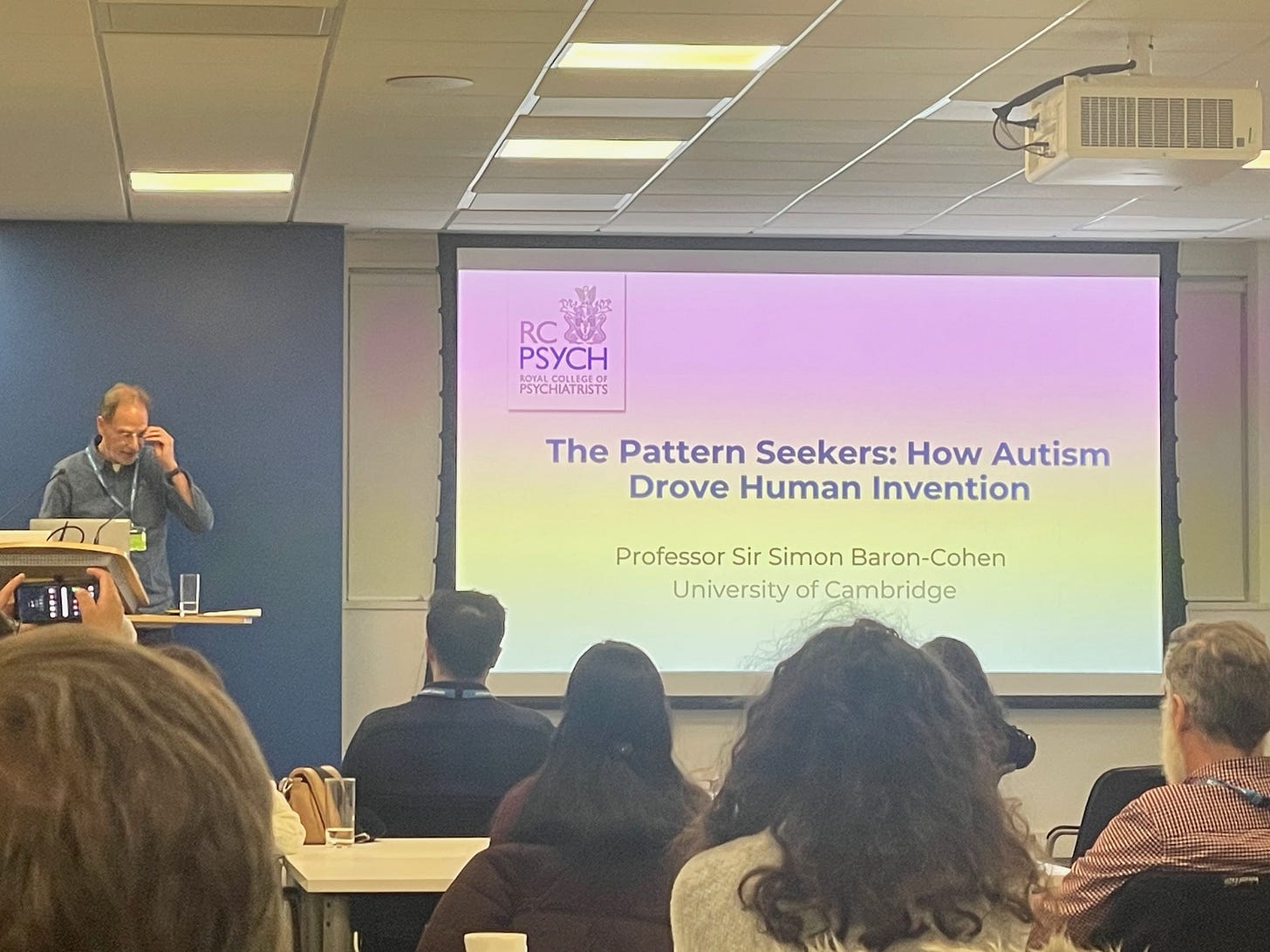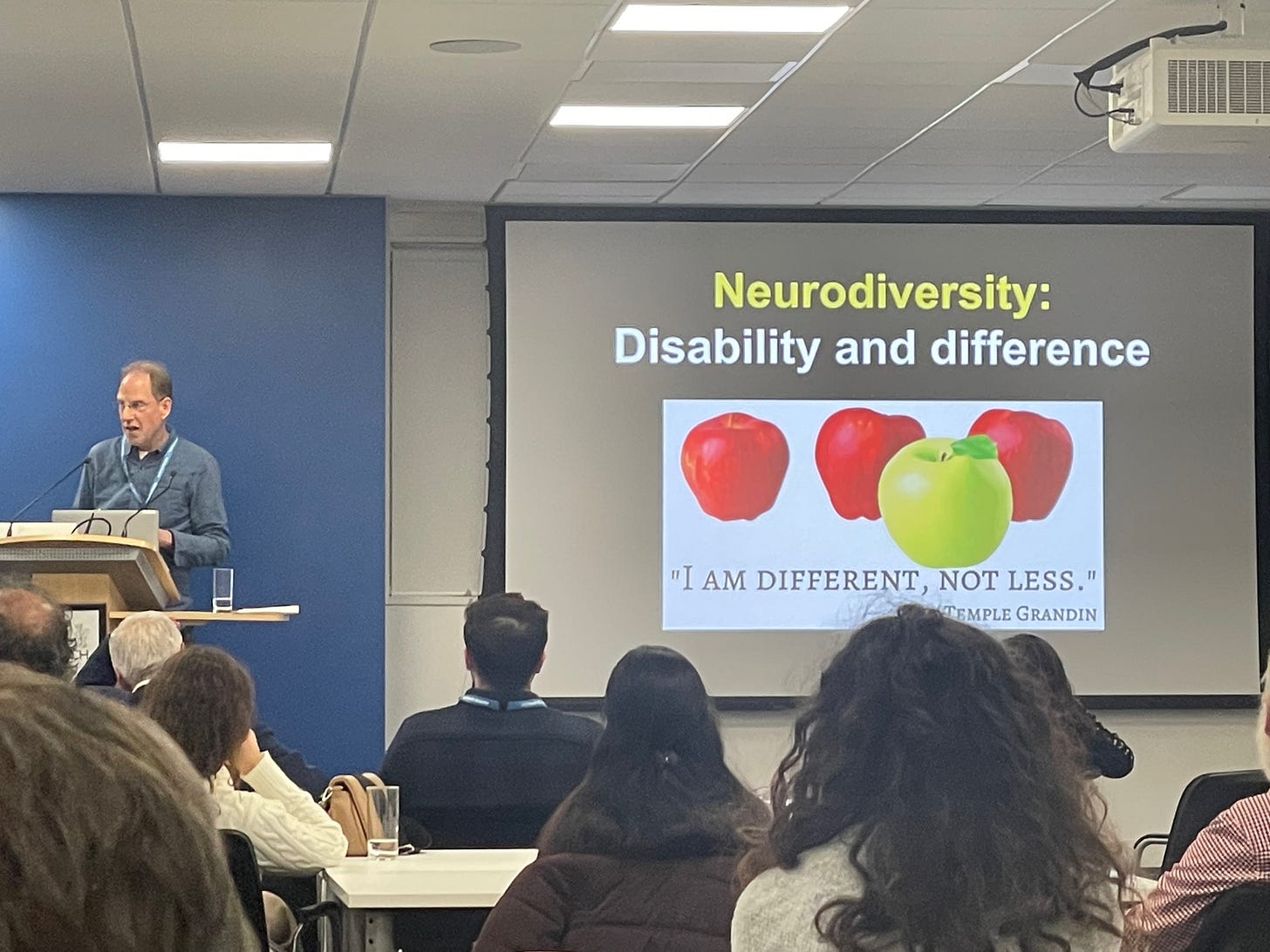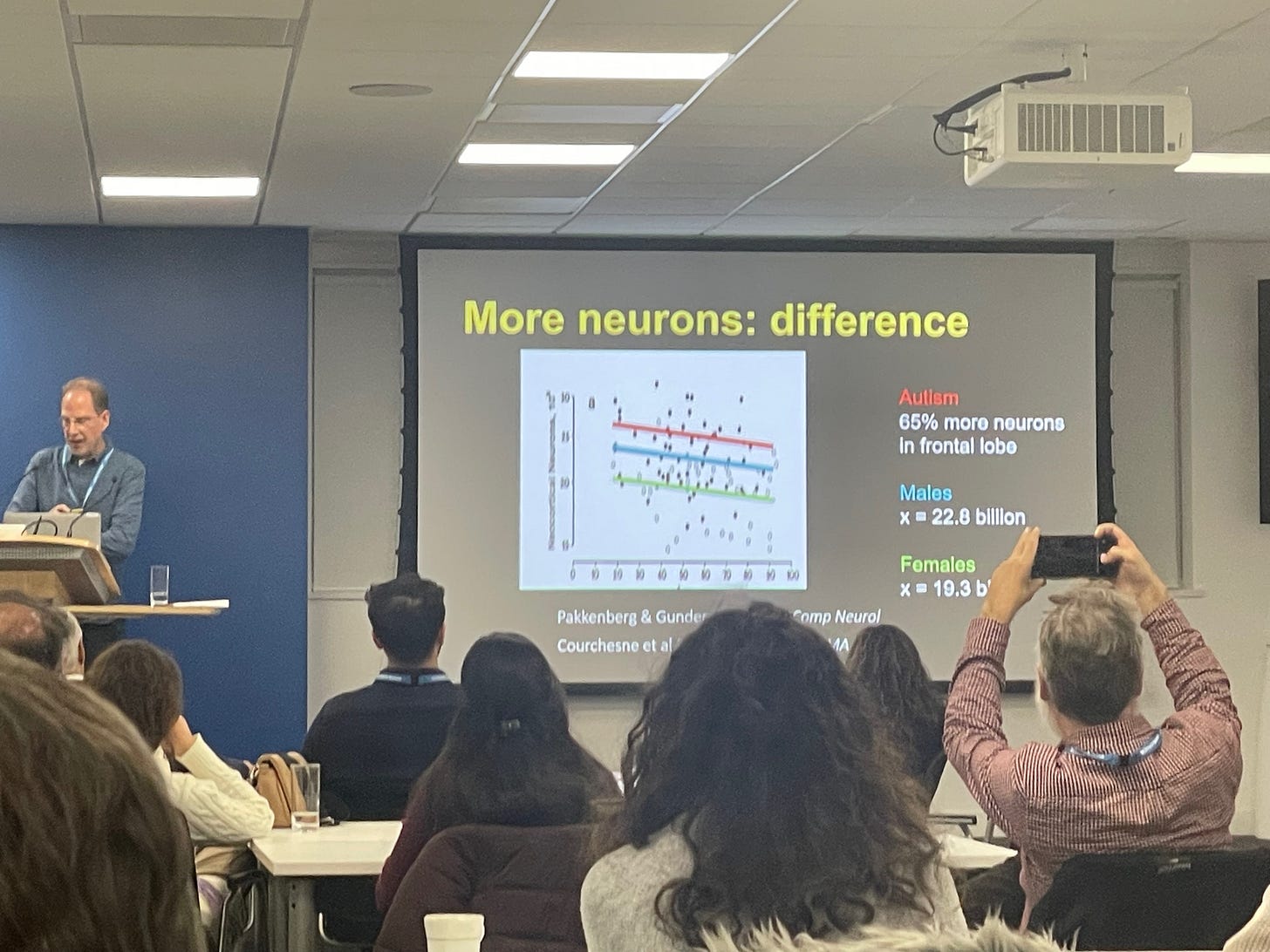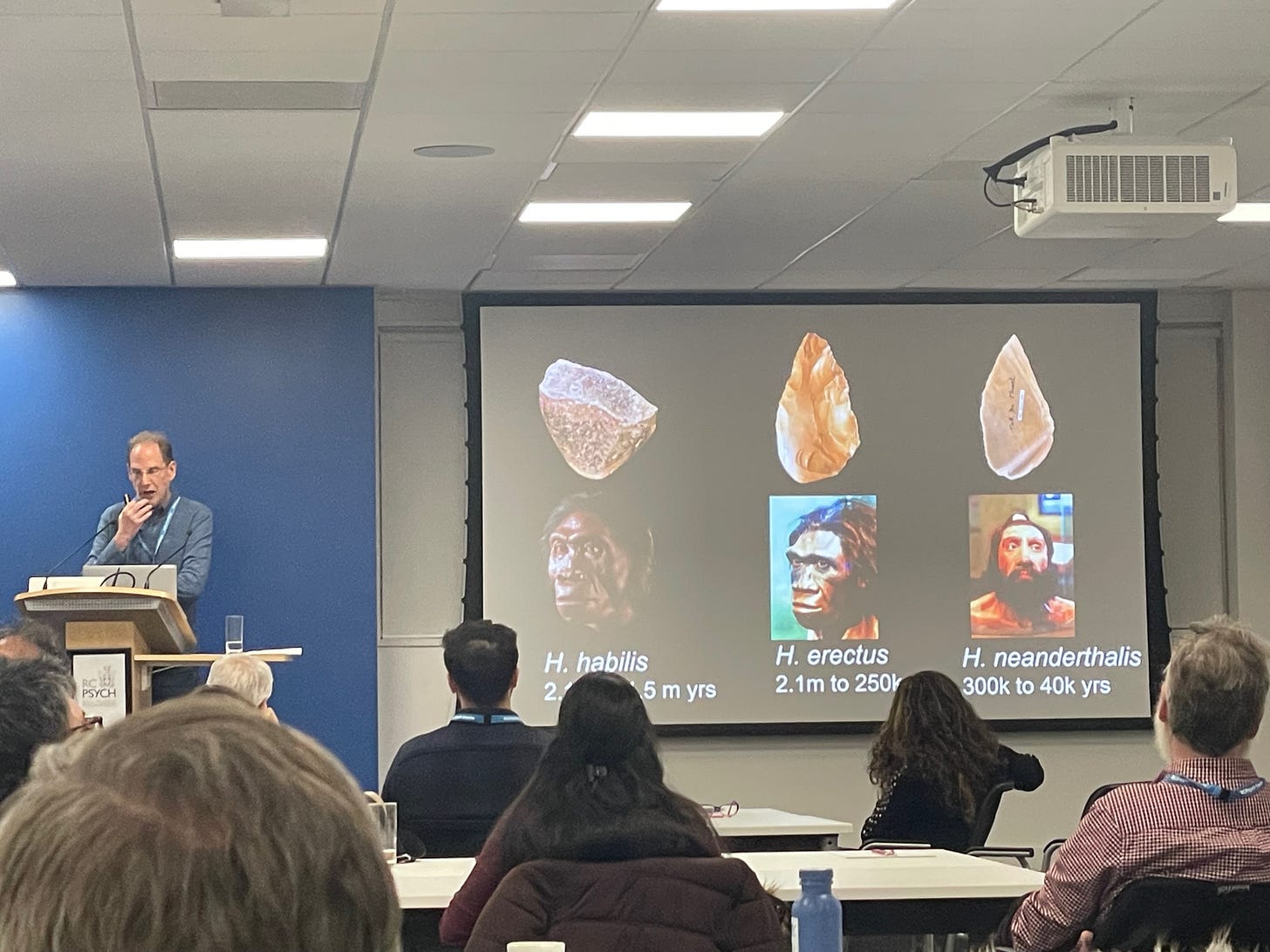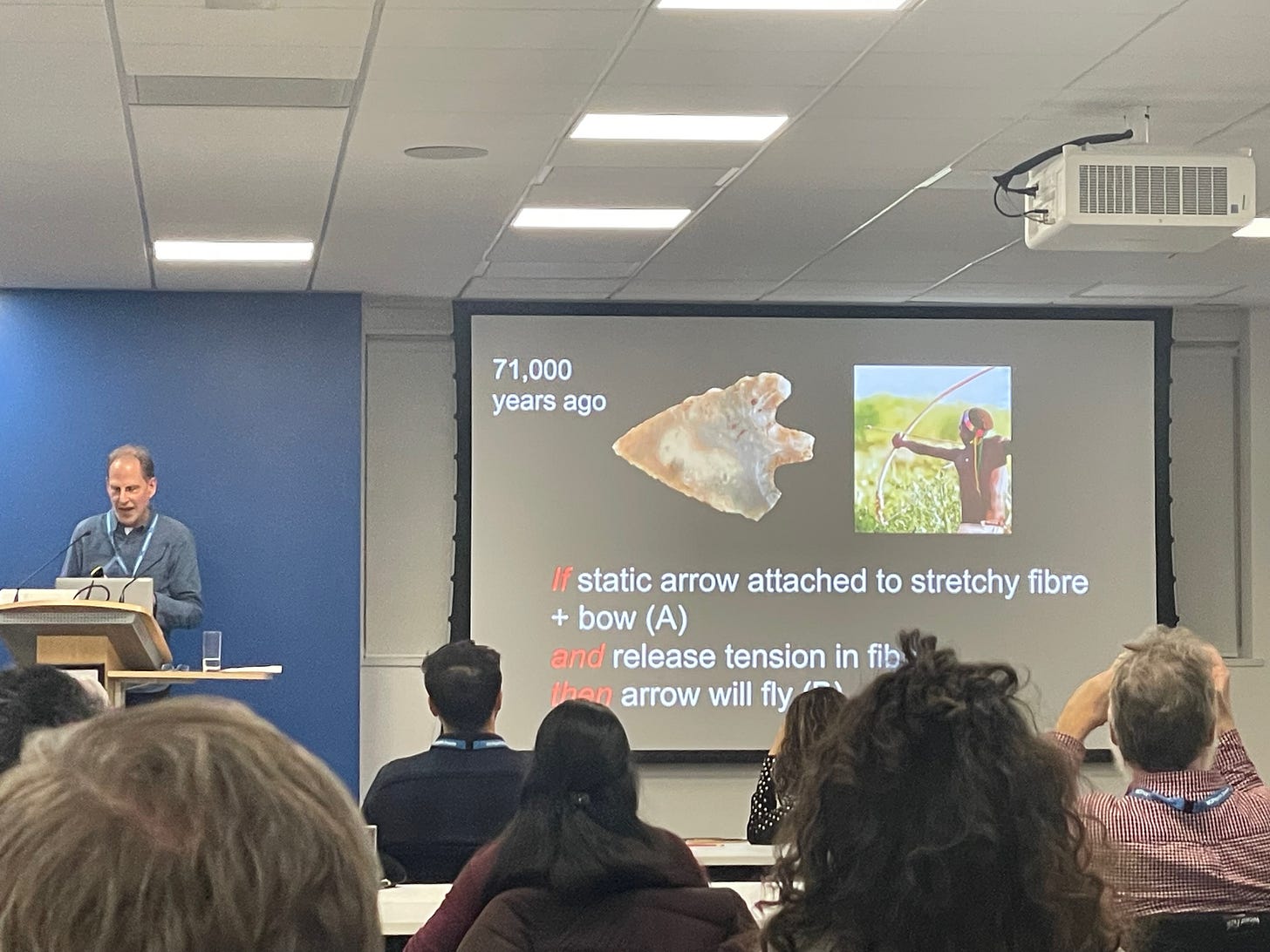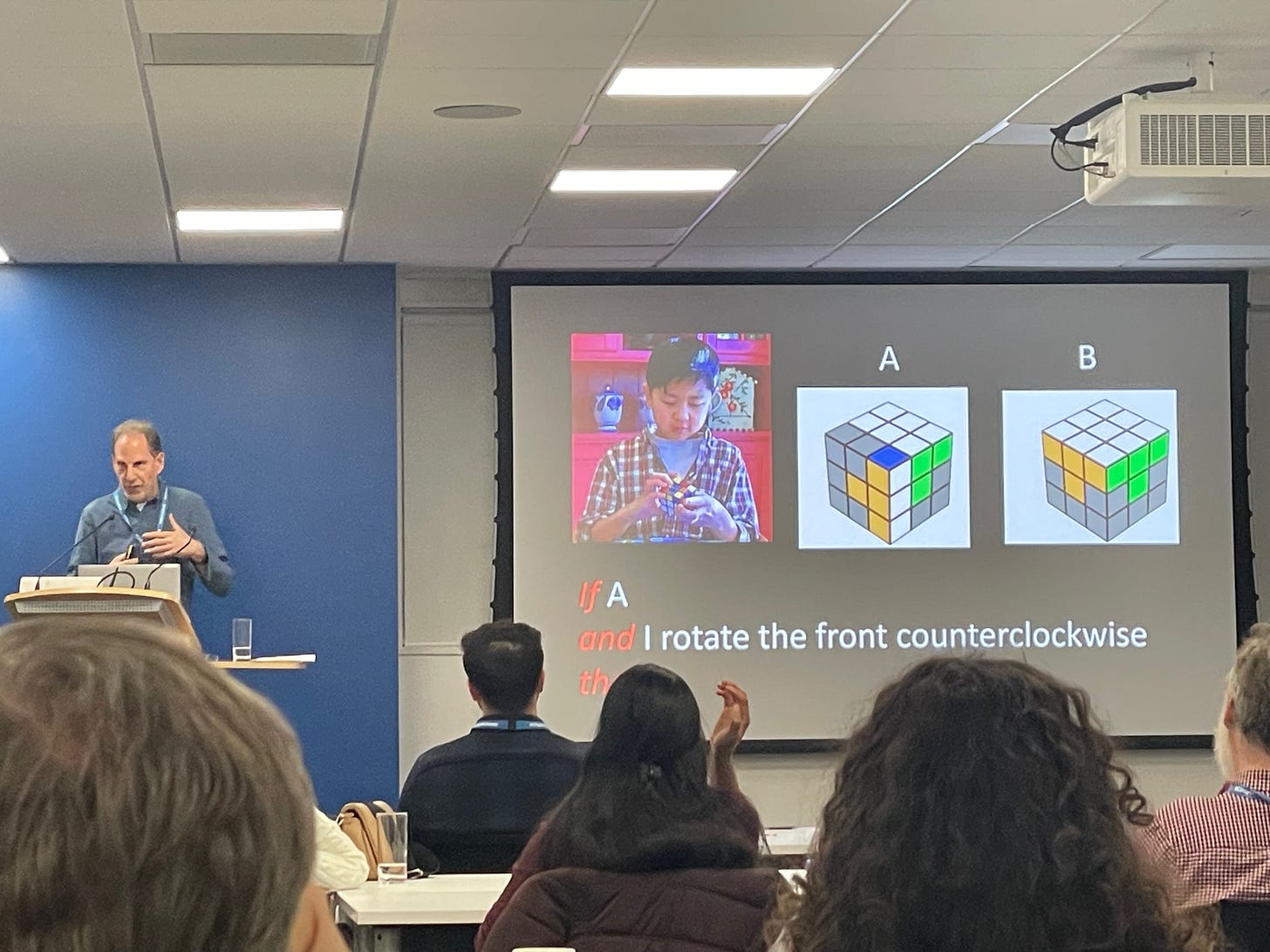6th International Symposium at the Royal College of Psychiatrists, UK
Dr Gurjot Brar writes about the recent flagship event for the field

Dear Readers, for this month’s article I round up some of the highlights from the 6th International Symposium which took place at the Royal College of Psychiatrists, London, UK.
Particular highlights were the keynote talks given by the esteemed and erudite speakers Professor Nicholas Humphrey and Professor Sir Simon Baron-Cohen.
As with much of my previous write-ups, I’ve been fortunate enough to obtain slides and some pictures which will do more justice to the day than simply my words alone.
The general format will include the speaker, the name of their talk and a brief biography followed by slides and comments.
Dr Riadh Abed
Welcome & Introduction
Bio
Dr Abed is a retired NHS psychiatrist, medical director and Hon Senior Clinical Lecturer, University of Sheffield. Currently, medical member of the mental health tribunals in England.
He is also Founding chair of EPSIG and current chair of the section of evolutionary psychiatry at the WPA.
A Leading Light in Evolutionary Psychiatry - Dr Riadh Abed, FRCPsych
It was absolutely incredible talking with Riadh who has been a leading light and eminent scholar in Evolutionary Psychiatry. In addition to publishing for nearly three decades in the field, Riadh has been instrumental in the founding of the first Evolutionary Psychiatry Special Interest Group in the world with the Royal College of …
Presentation
Riadh is much the face of Evolutionary Psychiatry here in the UK, everyone knows him as a fierce but fair proponent! Riadh opened the symposium with some introductory remarks, before briefly discussing not one, not two but three of his recent published editorials! Each of these is a high calibre commentary on the value evolutionary theory can provide to psychiatry: (links to full articles in captions below)
Riadh then offered some food for thought regarding challenges and questions facing psychiatry (including evolutionary psychiatry) and asked us to ponder these throughout the symposium (and beyond).
Professor Henry O’Connell
Mental Health and the Environment - Evolutionary Perspectives
Bio
Professor Henry O'Connell is employed as Consultant Psychiatrist with the HSE (Portlaoise, Ireland) and Clinical Professor with the School of Medicine at the University of Limerick.
In 2021 he became Founding Chair of the College of Psychiatrists of Ireland Evolution and Psychiatry Special Interest Group. He is a member of the World Psychiatric Association Faculty of Evolutionary Psychiatry and he has published widely on many aspects of evolution, mental health and illness.
Presentation
Our very own Henry was up first with a talk that some readers might find familiar. This topic was initially featured as an article on our Substack almost a year ago:
Evolution, Psychiatry & the Environment (Green Psychiatry & Biophilia)
This article was inspired by one of the keynote talks at the Annual Conference 2023 of the Maltese Association of Psychiatry in Novemeber 2023 delivered by Henry himself.
Dr Reem Abed
Engaging medical students in evolutionary psychiatry
Bio
Dr Reem Abed is a consultant psychiatrist working in the Sheffield Early Intervention Service at Sheffield Health and Social Care NHS Foundation Trust. She is passionate about engaging medical students and evolutionary psychiatry. She is an Executive Committee member of the Evolutionary Psychiatry Special Interest Group.
Presentation
Professor Marco Del Guidice
The challenges and opportunities for evolutionary psychiatry in the genomics era
Bio
Marco Del Giudice is Associate Professor of psychology at the University of Trieste. His work explores a broad range of topics at the intersection of human behaviour, evolution, and development. His research areas include evolutionary models of mental disorders (with a particular interest in taxonomy), the mechanisms of motivation and emotion, the evolution of developmental plasticity and the role of stress neurobiology, and the evolution of individual and sex differences in psychological traits.
He has published over 110 papers and chapters; in 2016 he won the Early Career Award of the Human Behavior and Evolution Society.
Presentation
Dr Costa Savva
Essay Prize winner presentation. Catatonia: A clear case of mechanism failure?
Bio
Dr Costa Savva graduated from Oxford University medical school in 2020 and completed foundation training in the Oxford Deanery. After this, they obtained a PGcert in Psychiatric Research from Kings College London, prior to starting core psychiatric training in the Wessex Deanery. Dr Savva has published multiple first-author papers in peer reviewed journals, including a recent evolutionary theory of psychosis that foregrounds the centrality of mismatch and bridges explanatory gaps between ultimate and proximate mechanisms through a focus on the recently discovered functional brain network known as the "Salience Network"
Presentation
Cos presented an eloquent summary of his prize winning essay on catatonia but unfortunately for us, Cos elected to not have any slides! Nevertheless, it was quite a presentation which I guess you just had to be there for.
Dr Riya Gosrani
Essay Prize winner presentation. Evolutionary Insights: Reducing Stigma and Enhancing Empathy in Alcohol Use Disorders.
Bio
Riya Gosrani is a recently qualified medical doctor, having graduated from UCL Medical School earlier this year. They have just started resident training in London. Their path through medical school was a bit unique; Riya intercalated in their third year with a degree in Global Health at UCL, and later took a year out between my fifth and sixth years to
complete a master's in medical Anthropology at Oxford. It was during their master’s that they were introduced to evolutionary medicine, and their main research explores how evolutionary perspectives can be applied to dismantle harmful, racist medical practices that persist today.
After attending the ISEMPH public health conference last year, Riya had the chance to present their research at this year’s conference, where they also served on the program committee. At ISEMPH in Durham in August, they connected with Paul St John-Smith and Riadh at the Evolutionary Psychiatry pre-meeting. Inspired by the talks and discussions during this event, they entered the essay competition, which ultimately led them here.
Presentation
Riya then gave an excellent and well received presentation on her prize winning essay on alcohol use disorders with a focus on reducing stigma and enhancing empathy.
Professor Zanna Clay
The Origins of Empathy: Evolutionary and developmental insights from great apes and young children
Bio
Zanna Clay is a Professor of comparative and developmental psychology at Durham University.
Bridging across the disciplines of Psychology and Zoology, Prof Clay leads the Comparative Cognition and Cross-Cultural Development Lab in the Psychology department at Durham University. Combining naturalistic observations and experimental methods, Prof. Clay studies primates and young children across cultures in order to investigate the evolutionary and developmental basis of empathy, social cognition, emotions and communication.
She is interested in the role of early life experiences in shaping emotion development and currently leads a large-scale project longitudinally investigating the development of empathy in great apes and human infants across cultures.
Presentation
Zanna gave an incredible talk on the origins of empathy, based on her work with great apes and young children. It was truly a fantastic talk that was one of my favourites from the day. Unfortunately there are no slides available for the talk but please see some pictures below which hopefully give you a sketch of the talk:
Professor Nicholas Humphrey
Sentience and Selfhood
Bio
Nicholas Humphrey, Emeritus Professor of Psychology at the London School of Economics, is a Cambridge-based theoretical psychologist who studies the evolution of intelligence and consciousness.
He was the first to demonstrate the existence of 'blindsight' in monkeys, studied mountain gorillas with Dian Fossey in Rwanda, proposed the celebrated theory of the "social function of intellect" and has investigated the evolutionary background of religion, art, healing, death-awareness and suicide.
His honours include the Martin Luther King Memorial Prize, the Pufendorf Medal and the International Mind and Brain Prize. His most recent books are Soul Dust and Sentience.
Presentation
Professor Humphrey then gave a fascinating talk on consciousness, sentience and selfhood in our first keynote talk:
Sir Professor Simon Baron-Cohen
The Pattern Seekers: How Autism Drove Human Invention
Bio
Simon Baron-Cohen is a Professor in the Departments of Psychology and Psychiatry University of Cambridge and Fellow at Trinity College, Cambridge. He is Director of the Autism Research Centre in Cambridge, which he set up in 1997. He is author of 3 popular science books that have educated the public about autism and related areas of psychology: The Essential Difference, Zero Degrees of Empathy, and The Pattern Seekers. He has also written 2 academic books:
Mindblindness, and Prenatal Testosterone in Mind. He has also written books for parents and teachers, including Autism and Asperger Syndrome: The Facts. He is author of Mind Reading and The Transporters, digital educational resources to help autistic people learn emotion recognition, and both nominated for BAFTA awards. He has also published over 750 peer reviewed scientific articles, which have made contributions to autism research, typical cognitive sex differences, and synaesthesia research.
Three influential theories he formulated were the ‘mindblindness’ theory of autism, the ‘prenatal sex steroid’ theory of autism, and the ‘empathising-systemising (E-S)’ theory of typical sex differences. Among his scientific discoveries are 'mindblindness' in autism, that autism can be diagnosed at 18 months of age, the role of the amygdala in autism, genetic links between systemizing and autism, and the causal role of prenatal sex steroids in autism.
He created the first UK clinic for adults with suspected Asperger Syndrome (1999), now simply called autism, that has helped over 1,000 patients to have their disability recognized. He gave a keynote address to the United Nations in New York on Autism Awareness Day 2017 on the topic of Autism and Human Rights. He serves as Founding Trustee and Director of the charity the Autism Centre of Excellence (ACE) at Cambridge, which uses evidence-based campaigning to improve the world for autistic people, and is scientific advisor to the company Auticon, which only employs autistic people.
He is a Fellow of many academies and professional bodies, such as the British Psychological Society, the British Academy, the Academy of Medical Sciences, the Royal Society of Medicine, and the American Psychological Association. He is Vice-President of the National Autistic Society and was President of the International Society for Autism Research (INSAR). He was Chair of the NICE Guideline Development Group for Autism (Adults) and was Chair of the Psychology Section of the British Academy.
He was founding co-editor in chief of the journal Molecular Autism. He is a National Institute of Health Research (NIHR) Senior Investigator. He is the Principal Investigator (PI) of the Wellcome Trust funded award investigating the genetics of autism, in collaboration with the Sanger Centre, and is PI of the SFARI funded award investigating the prenatal biology of sex differences in autism. He also leads other projects investigating vulnerability in autistic people, including in the criminal justice system, employment, and suicidality. He has supervised 45 PhD students, many of whom are professors around the globe.
He received a knighthood in the New Year’s Honours List 2021 for services to autism and was awarded the Medical Research Council (MRC) Millennium Medal 2023, which is the highest personal award for medical researchers in the UK, in recognition of his pioneering research into the prenatal sex steroid theory of autism, his establishment of the ARC, and his work in the public understanding of neurodiversity.
Presentation
To round the day off, Sir Professor Baron-Cohen spoke about his work in autism. Already renowned for his development of the "Theory of Mind" framework, which examines difficulties in understanding others' thoughts and emotions. He also introduced the concept of the "empathizing-systemizing theory," suggesting that individuals with autism often exhibit heightened systemizing abilities alongside challenges in empathizing:
I would like to take a minute to thank the symposium organisers and the staff at the RCPsych for enabling such a wonderful day to go ahead so smoothly!
If you enjoyed this article and would like to discover more about Evolutionary Psychiatry please consider:
subscribing to our Substack to receive regular content updates
visiting the webpage of the Evolution and Psychiatry Special Interest Group within the College of Psychiatrists of Ireland
visiting the webpage of the Evolutionary Psychiatry Special Interest Group within the Royal College of Psychiatrists
exploring a Youtube playlist on curated presentations by the Evolution and Psychiatry Special Interest Group within the College of Psychiatrists of Ireland
exploring the Youtube page of the Evolutionary Psychiatry Special Interest Group within the Royal College of Psychiatrists
exploring the Evolving Psychiatry podcast

